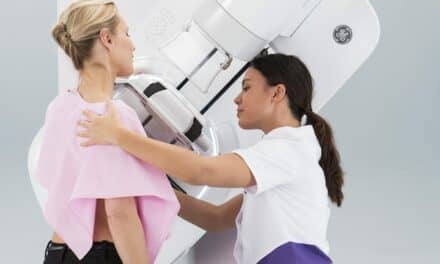In the largest-ever study on screening mammography outcomes, researchers found that there is no clear cut-off age to stop breast cancer screening. The research, presented at last week’s annual meeting of the Radiological Society of North America in Chicago, adds support for guidelines that encourage screening decisions based on individual patients and their health.
“All prior randomized, controlled trials excluded women older than 75, limiting available data to small observational studies,” says Cindy S. Lee, MD, assistant professor in residence at the University of California, San Francisco. “There has been a lot of controversy, debate, and conversation regarding the different breast cancer screening guidelines, even among major national organizations, over the past few years.”
Overall, researchers found mean cancer detection rate of 3.74 per 1,000 patients, recall rate of 10%, positive predictive value for biopsy recommended (PPV2) of 20%, and biopsy performed (PPV3) of 29%. Based on increasing age from 40 to 90 years old, these performance metrics demonstrated a gradual upward trend for cancer detection rate, PPV2 and PPV3, but a downward trend in recall rate.
“The continuing increase of cancer detection rate and positive predictive values in women between the ages of 75 and 90 does not provide evidence for age-based mammography cessation,” Lee says.
The findings lend support to the argument that the decision whether or not to stop screening should be informed by an individual’s personal health history and preferences. “We know that the risk of breast cancer increases with age,” Lee says. “With the uncertainty and controversy about what age to stop breast cancer screening, we addressed this gap in knowledge and have collected enough data to make a conclusion.”



